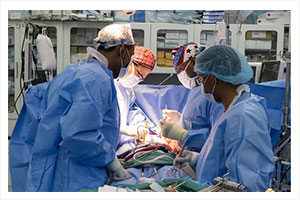Tanzanian businesswoman Lilian Makoi has introduced an affordable mobile healthcare solution christened Jamii Africa in Tanzania. Although she has co-founded a number of startups, Jamii Africa happens to be her biggest and most positive business venture.
According to Lilian Makoi, she started Jamii Africa after losing someone in her family from a treatable medical emergency. The main reason for the loss, she said was their inability to pay for medical services. And this according to her was a wake-up call.
She was therefore ignited to do a research concerning the incident, after which she found out that, in-access and in-affordability to medical services was a problem facing 70 percent of the Tanzania population.
Per the research, she decided to speak with various insurers to understand why they were not addressing such an issue. But unfortunately majority attributed their inability to “high insurance administration costs.”
“Through the experience I had gained in my career it was easy to craft out how the mobile phone can be used to do most, if not all, of the administrative activities of the insurer, from on-boarding, premium collection, benefit ledger management, claims processing and payout,” she said.
She then built the platform and reached out to Vodacom as a product partner. With Jamii, users easily call Vodacom’s M-Pesa USSD menu and select a policy fit for their family size and what they can afford.
The policy ranges from $1 a month to $70 a year which also varys from 3 months/6 months to 12 options for individuals or families. After selecting the desired policy, individuals pay the premium via M-Pesa and then Jamii’s platform manages their benefit ledger, claim processing and payout to hospitals.
The platform cuts out the need for paperwork and manpower that makes insurance expensive. However, for each selected policy option, the user can spend 500 times the premium paid to access medical services.
The policyholder is then allowed to get medical services within the benefit cap, upon which they pay the hospital’s approved claims via M-Pesa. This platform provides affordable policies with flexible payment options that match the nature of the low-income families.
Speaking about the tech sector in Tanzania, she indicated that, it is developing with new players coming in and the youth actively playing a major role in the tech space as founders and CEOs.
According to her, there are tons of opportunities in terms of solving basic to business problems in the country using technology. She also commended the youth for being very active and risk-averse in technology.
She indicated that more could be done, in developing the ecosystem by providing the requisite support to make the journey shorter and easier for the founders and CEOs.
Although Lilian faced some challenges with team building and capital, now, she hopes to do more marketing campaigns directed towards customers and SME ; in a country where out of 50 million people, only five percent have health insurance


